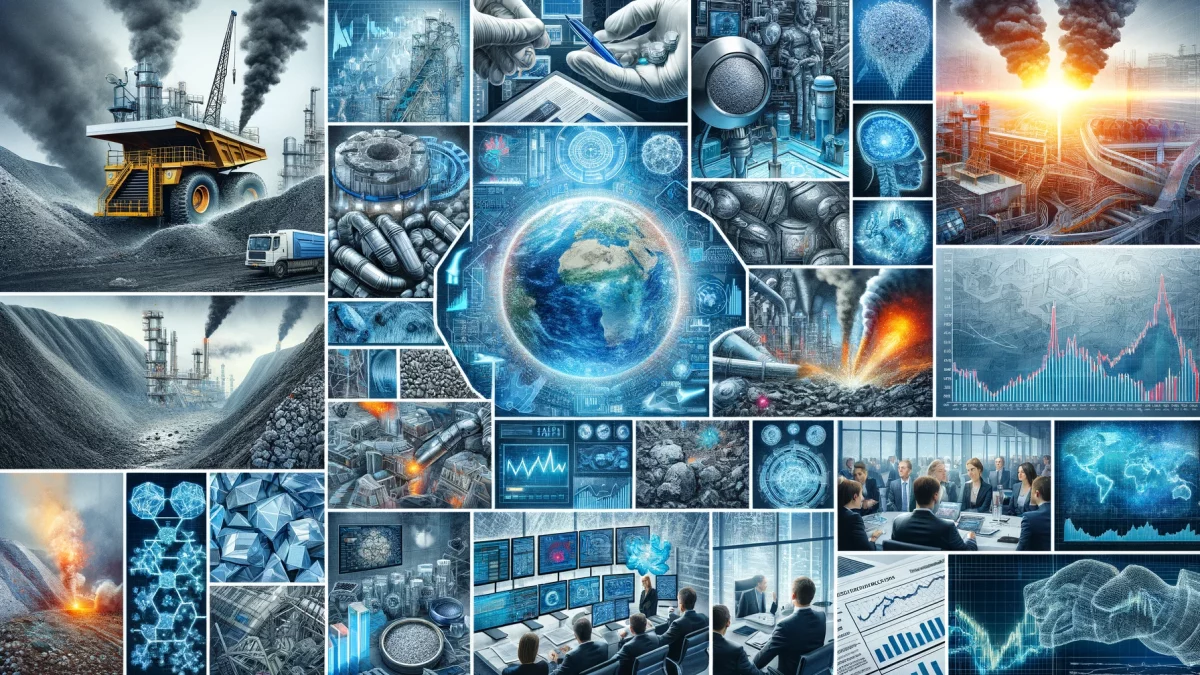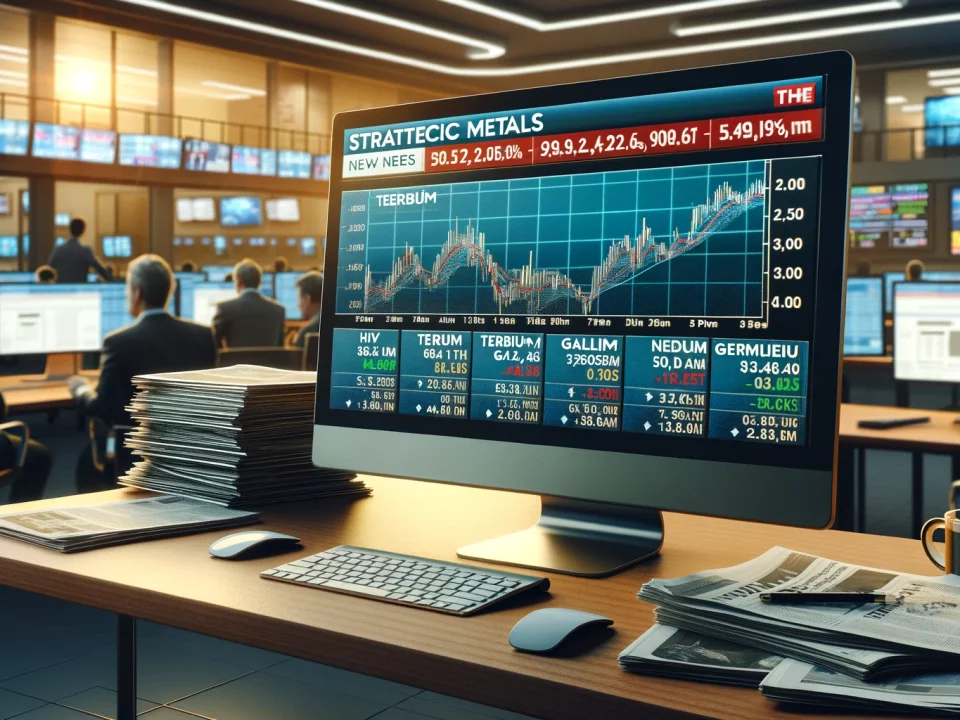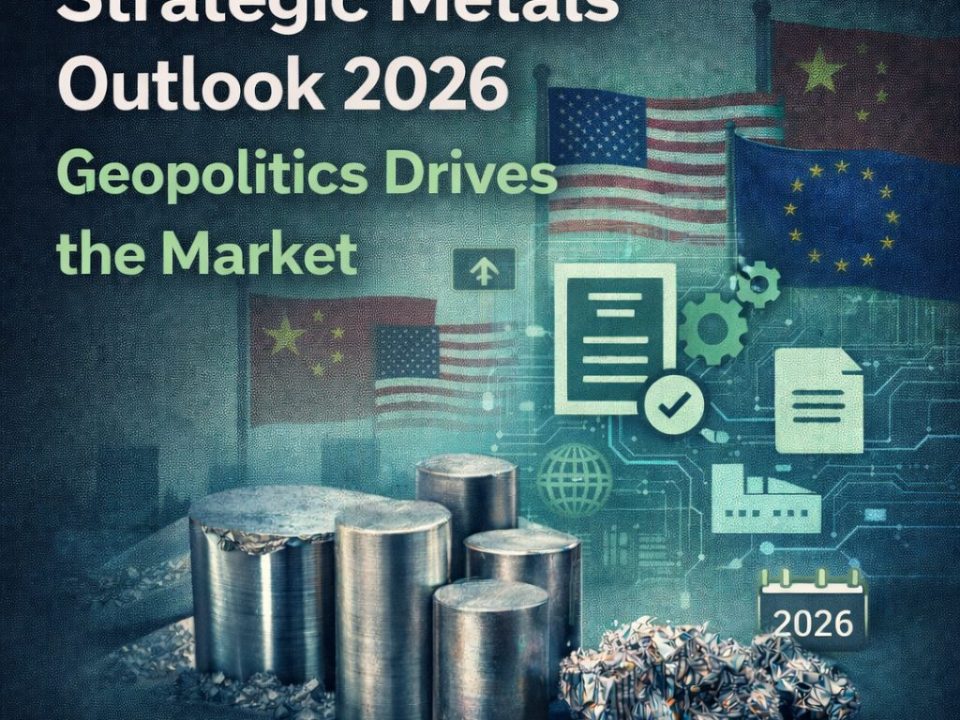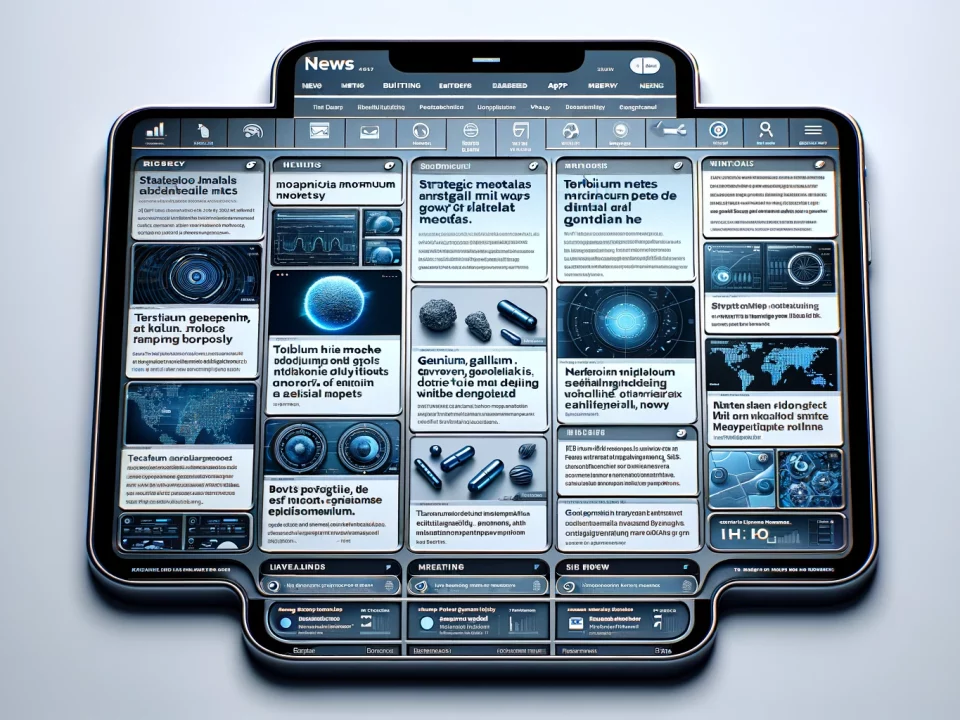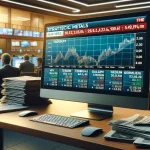
Weekly News Review Feb 12 – Feb 18 2024
February 18, 2024
Weekly News Review Feb 26 – Mar 3 2024
March 4, 2024Welcome to this week’s news round up.
STRATEGIC METALS TO BE STOCKPLIED LIKE OIL?
Experts argue building up reserves is urgently needed.
Creating strategic reserves of critical raw materials could contribute much faster to securing supplies for the U.S. economy than new mining projects.
At least, that’s how industry insiders see it. Instead of investing billions in projects that may not deliver results for many years, 600 million dollars could buy enough gallium, germanium, and cobalt for two years. China’s export restrictions and bans demonstrated the urgency of securing access to technology metals and rare earths last year. In the meantime, exports of gallium, for example, came to a standstill as export licenses had to be obtained.
At the same time, China’s strategy about resources could be a role model; Bloomberg quotes other voices from the industry. The National Food and Strategic Reserves Administration manages stocks and stabilizes the market by buying or selling if necessary. According to experts, the agency has good timing when intervening. According to estimates, it manages two million tons of copper, among other things, and makes decisions much faster than its US counterpart, the Department of Defense’s Defense Logistics Agency (DLA). Bloomberg continues that the DLA must submit applications to Congress to purchase resources, which can take a whole year for approval.
The International Energy Agency (IEA) has also recently advocated building up reserves of raw materials. In this context, IEA Chairman Fatih Birol referred to the mechanism for maintaining the oil supply. The agency was founded in 1974 to avert shortages of fossil fuels. In contrast to crude oil, which the IEA members are obliged to hold in stock, the IEA advocates voluntariness for critical raw materials in a recent communiqué.
UNITED STATES GOVERNMENT AWARDS $1.5 BILLION TO GLOBAL FOUNDRIES FOR DOMESTIC SEMICONDUCTOR PRODUCTION
Global Foundries also plans to expand gallium nitride silicon semiconductor production.
According to a statement by Vice President Kamala Harris, the Biden Administration will award GlobalFoundries with $1.5 billion to strengthen domestic semiconductor production and bolster critical supply chains. Under a preliminary agreement, GlobalFoundries is set to create a new advanced semiconductor production facility in Malta, New York. In addition, the funding will allow the company to expand existing operations in New York and Vermont.
Harris added that the chips made by GlobalFoundries are critical components for developing and manufacturing sophisticated technologies such as satellites and space communications and, thus, essential for national defence and security.
The funding is part of the Chips and Science Act, signed into law by President Biden to modernize and expand the domestic production of semiconductors and computer chips.
Under the act, GlobalFoundries has already received multiple investments, including $35 million to develop state-of-the-art gallium nitride (GaN) silicon semiconductors at its plant in Vermont, which will now be expanded.
Gallium nitride enables particularly energy-efficient chips with high performance in the smallest spaces. Applications include 5G and 6G mobile communications, the automotive industry, and critical infrastructures such as power grids. GaN chips are also increasingly used in aerospace and defence applications.
EUROPEAN STRATEGIC METALS INDUSTRY SEEKS URGENT POLITICAL SUPPORT
Seventy-three players from a wide range of industrial sectors signed the Antwerp Declaration for an “Industrial Deal” on Tuesday. In it, they call for strengthening European industry, which is at risk of falling behind in international comparison.
The declaration states that the sector accounts for almost eight million jobs and generates 550 billion euros. While the economy in the U.S., for example, could benefit from the financial support provided by the Inflation Reduction Act (IRA), sites in Europe are being closed and production reduced. One of the points that urgently needs to be addressed by politicians is securing the supply of raw materials. This could be achieved by expanding domestic mining, processing, and recycling capacities, combined with new global partnerships.
The signatories include BASF CEO Martin Brudermüller, ExxonMobil Europe President Philippe Ducom, and the Director General of the industry association Eurometaux, Guy Thiran. According to the companies, the Industrial Deal is set to become a central item on the EU Commission’s 2024-2029 agenda.
EU SIGNS AGREEMENT WITH RWANDA ON STRATEGIC METALS
The African country is the world’s third-largest tantalum producer – it also mines tin, tungsten, gold, and niobium and has the potential for lithium and rare earth elements.
Representatives of the European Union and Rwanda signed a Memorandum of Understanding on critical minerals and sustainable supply chains on Monday. The agreement signed by EU Commissioner for International Partnerships, Jutta Urpilainen, and Rwandan Minister of Foreign Affairs and International Cooperation, Vincent Biruta, establishes cooperation between the EU and the African country across multiple areas, including the integration of sustainable raw materials value chains, the mobilization of funding for infrastructure projects, and collaboration on research and innovation. In addition, the memorandum encompasses sharing knowledge and technologies related to sustainable mining, exploration, processing, and recycling of critical minerals.
Critical Mineral Partnerships to Diversify Supply Chains:
The partnership aims to build on top of Rwanda’s existing mining sector and enhance it. According to data from the U.S. Geological Survey (PDF), the African country is the world’s third-largest tantalum producer. It also produces tin, tungsten, gold, and niobium and has potential for lithium and rare earth elements.
The EU, on the other hand, seeks to ensure a sustainable supply of critical raw materials for its energy transition, according to the statement by the European Commission. The agreement follows similar commitments signed with other African countries last year: the Democratic Republic of the Congo, the Republic of Zambia, and Namibia.
All four partnerships stand under the EU’s Global Gateway strategy, intended to be a counterweight to the Chinese Belt and Road Initiative, under which the industry leader seeks to gain access to African resources, among other things. Global Gateway envisages investments of up to 300 billion euros by 2027.
The EU highly depends on critical mineral imports from China and seeks to diversify its supply chains.
MERCEDES LOWERS ELECTRIC CAR PRODUCTION TARGETS
German carmaker Mercedes-Benz wanted to become fully electric by the end of the decade. The announcement of 2021 was accompanied by the subordinate clause “wherever market conditions permit.” And it is precisely these conditions that are apparently forcing the Stuttgart-based company to reduce its targets significantly.
Only 50 per cent of total sales are expected to be fully electric, according to a press release on the 2023 annual results. Market conditions and customer wishes will determine the pace of the transformation. If necessary, vehicles with combustion engines will be available until the 2030s. As things stand, this is likely to end in 2035, as the ban on the sale of new cars powered by petrol or diesel will come into force in the European Union.
However, the compromise between the EU and the German government, which will allow the creation of a new vehicle category powered only by synthetic fuels by fall 2024, is one of the uncertainties.
These would be exempt from the sales ban regulation, and combustion engines would have a new chance – if enough so-called e-fuels are available by then.
MP MATERIALS (USA) POSTS QUARTERLY LOSS YET MAKES SIGNIFICANT PROGRESS
The operator of North America’s most important rare earth mine reports figures.
The beacon of hope for the rare earth industry in the U.S., MP Materials, has presented results for the fourth quarter and full year 2023. The Las Vegas-based company ended the past quarter with a loss of USD 16.3 million. A profit of 67 million was generated in the same period of the previous year. MP Materials explains the development with the current low price level for rare earths.
Meanwhile, CEO James Litinsky reported positive news from Fort Worth, Texas, where the construction of a factory for alloys and magnets made from rare earths is progressing. Initial tests have been successful.
This plant could bring a significant part of the value chain for critical materials back to the U.S.
Litinsky announced that possible acquisitions would be examined during the conference call on the financial results. Still, he would not comment on speculation about a merger with the Australian Lynas Group.
EU AND CHINA DISCUSS COOPERATION ON STRATEGIC METALS AND ELECTRIC CARS
Europe depends on imports of critical minerals from the People’s Republic but seeks to diversify.
Reuters reports citing the Chinese Ministry of Industry and Information Technology, representatives of China and the European Union met to discuss potential cooperation on raw materials and automobiles. According to the news agency, Xin Guobin, the Ministry’s head, convened with Kerstin Jorna, European Commission Director-General for Internal Market, Industry, Entrepreneurship, and Small and Medium Enterprises, regarding mutually beneficial partnerships.
The meeting comes amid challenging times in European-Chinese relations. The European Union is seeking ways to reduce its resource dependency on the industry leader; EU Commission President Ursula von der Leyen called for reducing economic risks regarding dependency last year.
AUSTRALIA EYES FREE TRADE AGREEMENT WITH UNITED ARAB EMIRATES
Trade Minister Don Farrell visits Abu Dhabi. An agreement could bring billions in investment to Australia’s resources sector.
Resource-rich Australia is expanding its position as a significant global producer of critical minerals and is also seeking foreign investment in the sector. This could soon come increasingly from the United Arab Emirates (UAE), Australia’s most important trading partner in the Middle East; a free trade agreement between the two countries is expected to be concluded this year, Australian Trade Minister Don Farrell told Bloomberg (paywall). Talks to this effect are planned at the 13th Ministerial Conference of the World Trade Organization WTO in Abu Dhabi, the capital of the UAE, which Farrell will be attending.
The West Australian writes that a trade agreement with the UAE could bring billions of dollars of investment to Australia’s mining and resource processing sector. According to the industry service Global SWF, four sovereign wealth funds in Arab countries alone are among the top 15 in the world.
While the trade agreement with the UAE is making good progress, talks with India and the European Union have been put on hold until after the upcoming elections there, Bloomberg quotes Farrell as saying. He described the negotiations with the EU as tense; as we reported, agricultural policy, in particular, is an issue of conflict, and Australian representatives also accused the alliance of unrealistic ideas concerning critical minerals and rare earth metals. A view that Australia’s Minister for Resources, Madeleine King, recently confirmed in an interview.
WILL CHILEAN LITHIUM QUALIFY FOR INCENTIVES UNDER THE US INFLATION REDUCTION ACT?
US representatives will visit Chile next week. The Latin American country has the world’s largest lithium reserves.
To boost ties on critical minerals, U.S. Treasury Secretary Janet Yellen will visit Chile next week, Bloomberg reports, citing the Treasury Department.
The Latin American country is home to the world’s largest reserves of the battery mineral lithium, data from the U.S. Geological Survey show. However, the country’s output is dwarfed by the industry leader Australia, which produces almost twice as much. The Chilean government is pushing for more international partnerships to attract foreign capital and boost its mining sector. Bloomberg adds that the existing trade agreement with the U.S. would also qualify Chilean lithium for tax incentives under the Inflation Reduction Act. Chilean and U.S. officials have already discussed the possibility in November.
This could make the Latin American mining sector a potential investment target for U.S. carmakers searching for critical minerals to use in electric vehicle batteries.
In addition to lithium, Chile is the biggest producer of copper, which is needed for wires and electrical circuits, and the mining company Aclara Resources is developing a rare earth element deposit near the principal city of Concepción.
That’s all the news for this week.



